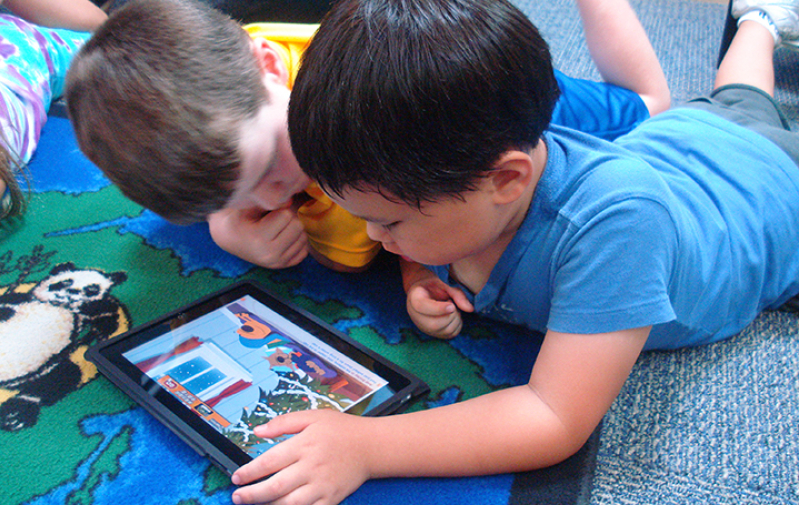
Taiwan has established a new law that will restrict the use of electronic devices for children under the age of 18, and ban it completely for children under the age of two.
The controversial new law went into effect last month and is already causing a stir due to its open-ended definition that restricts the usage of iPads and other hi-tech gadgets for a "reasonable" time.
But the problem, of course, is defining what "reasonable" actually is. According to one Taiwanese lawmaker, it is defined as no more than 30 minutes, but the government is putting the enforcement of the new law into the hands of parents. And the punishment for not obeying is a fine of 50,000 Taiwan dollars ($1,576) if the use of the device leads to physical or mental illness in the child.
CNN took a deeper look at this bit of legislation and offered a few opinions on the law's logistics. "The fact is that doctors' advice on screen-time has been clear for years -- and for years, it has been comprehensively ignored by most parents," CNN's Jake Wallis Simons says in his editorial piece. "The American Academy of Pediatrics (AAP), the most influential body to have released such guidelines, recommends that 'television and other entertainment media should be avoided for infants and children under age two.'"
The article points out that a child's brain develops at its fastest during those precious first few years, and interaction with other human beings is much more important for learning than staring at a screen.
Even the National Library of Medicine acknowledges that videos aimed at small children don't actually improve their development. Even worse, researchers have determined that exposing children to too much screen time can cause a wide variety of harmful effects such as "attention problems, anxiety and depression; behavioral difficulties; obesity; sleep loss; poor academic performance; and physical complaints."
Digital Trends takes a similar stance in its own editorial piece about the new law. "The Taiwanese government hasn't really said what it expects kids to do when they're not using a phone or a tablet, but it's inevitably something to do with going outside, putting shaped blocks into similarly shaped holes, or ringing doorbells and running away. Good wholesome fun, which will avoid sleep problems, shortened attention spans, and temper tantrums associated with too much tech."
But the problem,everyone agrees, is enforcing the law. While it would be costly and difficult to put monitoring devices on every consumer electronic, that certainly isn't a practical answer. In that case, it's ironic that parents are meant to enforce this new law when the parents is the cause of the child's electronic device usage in the first place.
The Digital Trends article concludes that, while the Taiwanese law may be a step in the right direction, it's a hasty reaction to something that may not even fully be understood at this point.
"Taiwan's rule smacks of knee jerk reaction to an over-publicized and misunderstood problem," the article states. "It's not the only rule of its type that could be introduced to benefit society. Why isn't there a rule for no more than 25 grams of saturated fat per day for everyone, not just children? How about a 30-minute walk being compulsory? Or, what about telling parents to show their children the joys of the world outside the smartphone and tablet, so it doesn't become the only thing they hanker for day in day out?"
The truth is, while there are certainly recorded side effects to the over-usage of technology for children, the rate of intellectual growth generation-over-generation is astounding. Children who can adapt to these new technologies will be at an advantage when they're older, but it's up to the parents to instill guidelines, regulation, and not use the family iPad as a babysitter. Just like every single other thing that your child is exposed to, moderation is the key.






